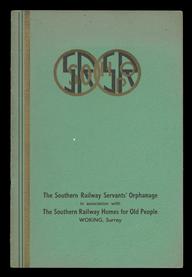

British Railways
“British Railways” is the expression commonly used to describe the business run by the following legal entities:
• Railway Executive (1948 – 1952)
• British Transport Commission (1952 – 1963)
• British Railways Board (1963 – 1993)
Railways were nationalised on 1st January 1948 when the assets of the railways in Great Britain were vested in the British Transport Commission (BTC), a state-owned corporation created by the Transport Act 1947. Between 1948 and 1952 the business of operating the railways was carried on by the Railway Executive, a state-owned corporation, subsidiary to BTC. The Railway Executive was abolished in 1952 and BTC took over direct responsibility for the railways. Before 1948 there was no brand that was identified with the whole of the railways of Great Britain, only the separate brands of the Group companies, Southern, Great Western, London, Midland and Scottish and London and North Eastern, and London Transport. The railways were run under the corporate identity “British Railways” from 1948 by both the Railway Executive and BTC. The public manifestations of this were the words themselves on vehicles and premises, quasi-heraldic devices on locomotives (the so-called “cycling lion” followed by the “ferret and dartboard”) and the lozenge shape adopted (and clearly inspired by London Transport’s very similar logo) for station names.
When the nationalised transport industry was reorganised in 1963, BTC was itself abolished and a new statutory corporation created to run the railways. This was British Railways Board (BRB). The name most closely associated with the national railway system had now become part of the name of the corporate entity, (i.e. the legal person, entitled as a matter of law to own property, to enter into contracts, and to sue (or be sued) in the courts and be prosecuted for breaches of the criminal law) which owned the assets and business of the railways of Great Britain. As a result of the corporate rebranding carried out in 1965 the business name, or brand name (as it was now expressly recognised to be), was shortened to “British Rail”. However, BRB retained the full “British Railways” in its title until its eventual abolition under the provisions of the Transport Act 2000.



